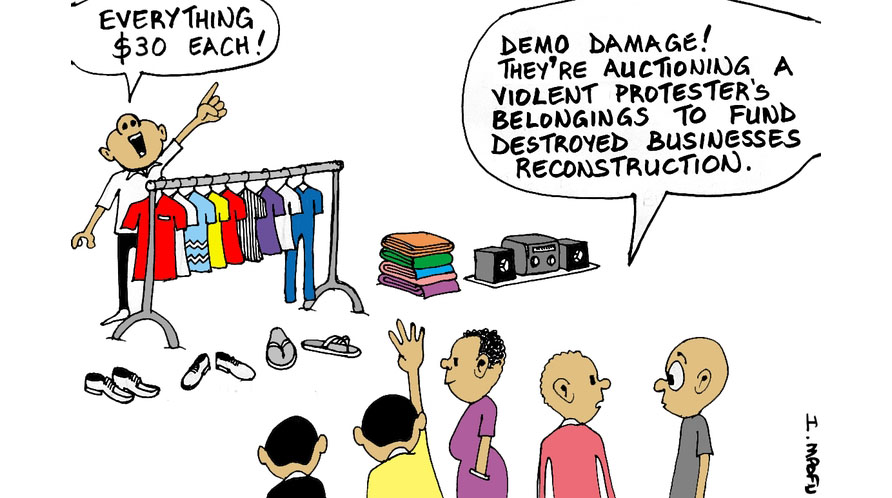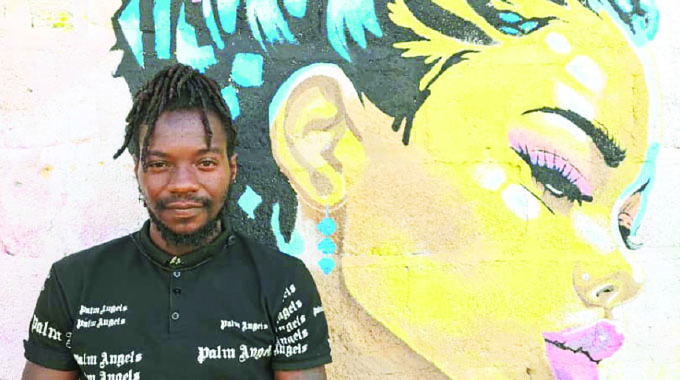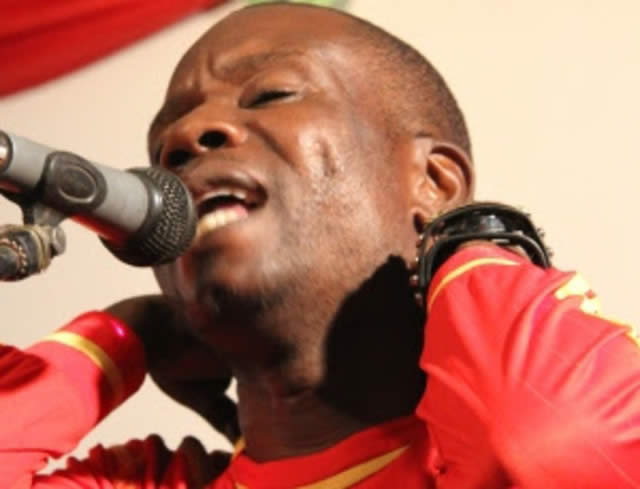Inside Edith Masango’s life

Mirirai Nsingo
She is the face of Zimbabwe International Film Festival Trust. As you enter the building, what greets you is a beautiful woman with a flawless radiant smooth-skinned face.
As she welcomes you with her fluent and eloquent command of the Queen’s language, you can be forgiven to mistake her as one of the Queen’s cousins.
Twenty-eight-year-old Edith Masango is the receptionist at Zimbabwe International Film Festival Trust. She is also visually impaired after losing her sight at the age of 20.
For someone who has seen the world for two decades and knows what light, life, and the beauty of creation looks like before she lost her eye-sight, Edith shares her journey noting that it has not been easy although she has totally regained control of her life.
This is the lifestyle of a working-class visually impaired young adult.
“Well it has not been easy, you can never understand how it is like losing your eye-sight after having seen the world and knowing exactly how it feels.
“I was born with a poor eye-sight and night blindness and the condition kept deteriorating but I totally got blind at age 20 when I gave birth. This was the worst that could ever happen and honestly I did not know how to cope. I contemplated committing suicide as I did not find any reason to be alive since I could not even see the baby I had given birth to,” she recalls, emotion engraved in every syllable as she spoke.
For a person who was grappling with the reality of losing her eyesight compounded with postpartum depression, the situation was getting out of hand and Edith says her family had run out of ideas on how to handle her until they decided to send her to the rural areas where her grandmother, who is also visually impaired lives.
“The condition is inherited genetically so my maternal grandmother is also blind and when my family had run out of solutions, they thought of sending me to her and yes it worked,” she says.
“Living with my grandmother gave me back my confidence and I was determined to live again. My grandmother is also blind and she is a prolific farmer who is well known for that (farming) in the village. She even feeds the poor from her produce!”
“All that changed me and made me a better person. I was ready to face the world accepting that I had lost my eyesight but that did not mean the end of the world.”
After finally accepting her condition, Edith says she had to come to Harare and move on with life as she now had responsibilities hence was determined to go for rehabilitation and get skills that could help her earn a living.
“I came back to Harare and asked my parents to take me for rehabilitation. So I immediately went for rehab at Dorothy Duncan where we were taught a lot about life and how we can live productive lives as blind people.”
“We were taught computers, switchboard operation, agriculture and other various life skills. Life at rehab was something else, it was such a cocktail with its ups and downs. Imagine being a community of all blind people, we would through tantrums, yell at each other but finally laughed.
‘‘We also shared experiences and fears and after three-months at rehab, I was rejuvenated to face the world,” she adds.
The mother of one says she immediately started job hunting after rehabilitation and got her first part time job at a local radio station where she did voice overs.
“After rehab I started job hunting and I started doing voice overs for radio, that is when I met these two girls who introduced me into acting. By then I had accepted that being blind was not such a big deal and told myself that I can do what sighted people can do.”
And is she not a sight for sore eyes when on stage? Or anywhere for that matter!
“The two ladies I met at the radio station, Yvonne and Eunice, introduced me into acting after I had told them that I was also interested in trying acting.
‘‘A few weeks after I had shared with them, I got a phone call from another lady who said there was someone who had asked her to look for me so that I could talk to and advise someone who was supposed to act blind.”
It was the start of a magical journey into a career that has changed her completely.
“When I met the person, he in fact changed his mind and asked if I wanted to try the character and play the role instead.
‘‘I gladly accepted the offer and was determined to show them that there was no need for someone who is not blind to act blind while we are there and can equally play the character much better.”
“The short film was called ‘The Collector’ and I actually did very well as this brought a realist act to the film.”
After her role in the short film, Edith says she met the director of the Zimbabwe International Film Festival Trust, Nigel Munyati who approached and asked her what else she was doing besides acting.
“My life has never been the same since then. Mr Munyati offered me a job after I had told him that I was job hunting. I’m forever grateful that he believed in me and gave me a chance to prove myself,” she says.
“I have been working here since 2015 and this workplace has become like a second home.”
Sharing about a day in her life, Edith says it starts just like any other day for a mother and a working woman noting that she does basically all the house chores.
“I wake up at 5:30 am and prepare myself and my son for the day. My brothers then walk me to the bus stop where I get transport into town and when I get into town I get help to catch my next kombi to work from well-wishers.”
“When I’m at work mum takes care of my son, Simba, and during the weekends I do all the household chores and then during my spare time we take a walk with my boy and talk about anything. He is such a brilliant boy and I can never trade him for anything,” says the doting mother, her heart melting almost visibly with spasms and avalanches of love.
Edith, whose dream is to be a radio or television personality, says she has made sure that she is not excluded in anyway in the society be it at family level or other institutions although she notes that stigma is high for people with disabilities adding that they had limited opportunities hence many continue to be impoverished.
“I do not want sympathy from anyone and in the same vein I do not want to be excluded as I can do most things that sighted people can do. Sometimes people are reluctant to assist me with direction when am travelling around as they do not believe that I’m blind.
‘‘Maybe it is because that I will be clean and well dressed as if they expect you to be dirty because you are blind.”
I’m happy that I live in a community that has accepted me and even at church, my pastor is so accommodating such that I have active roles within the church and I even play the role of a counsellor especially to young people.”
“What I want now are jobs on radio stations and television stations as an anchor or presenter so that I can live the dream I pursue in the arts and lifestyle industry,” she says. And who would fault her with those looks and a voice dripping of succulent tones that make everything she says palatable.
Why, she can even read one the telephone directory and you would never get bored, what with such a beautiful voice.
She envisages for a Zimbabwe where disabled people can have equal opportunities just like their able bodied counterparts adding that the Government should continue to come up with policies that can result in improved quality of life for the disabled.
Edith believes the society has also a role to play by shunning stigma while creating opportunities that can in turn reduce vulnerability among the disabled.







Comments